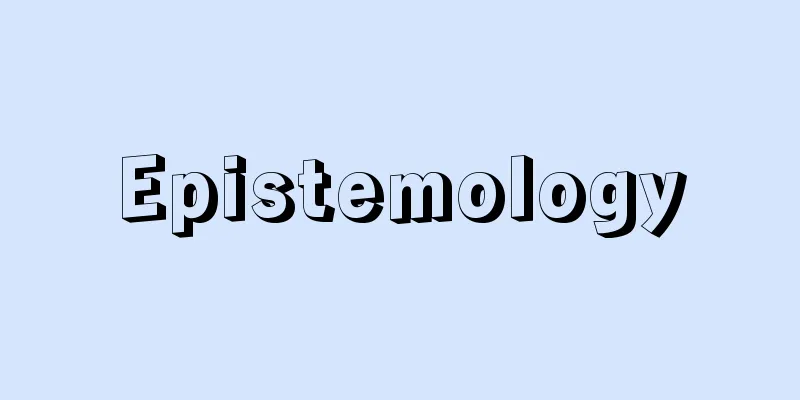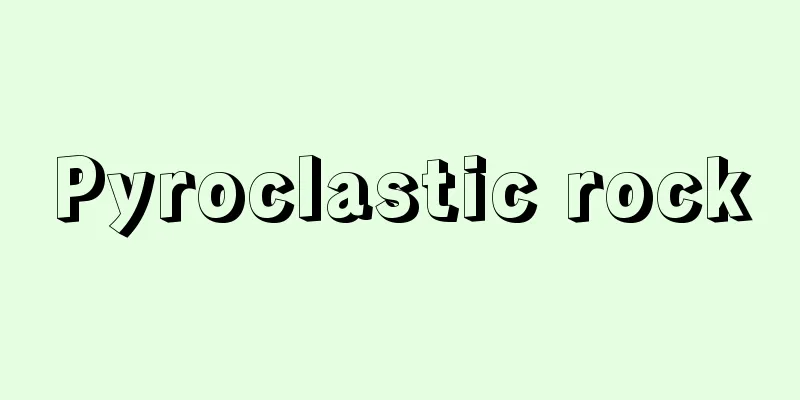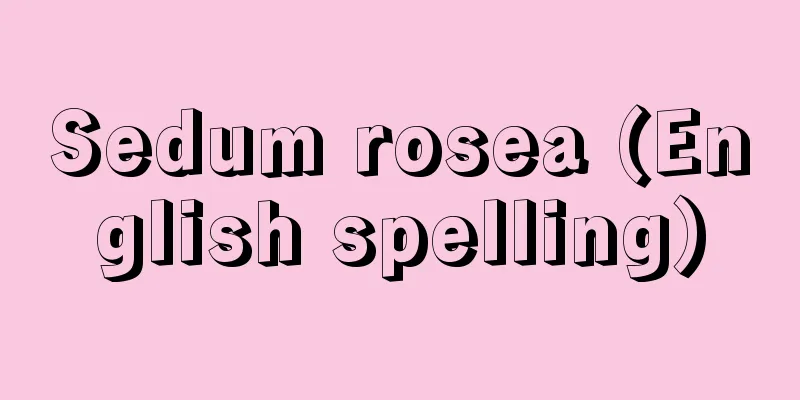Epistemology

|
If we interpret epistemology literally, it would be philosophical consideration or reflective study of cognition or knowledge. However, when we compare the usage of the original term in Western Europe, we can see the difference in emphasis. "Epistemology" is a translation of the German word Erkenntnislehre (theorie). By the way, the term "epistemology" is not commonly used in Germany, unlike the English words epistemology and theory of knowledge and the French words épistémologie and théorie de la connaissance. In England, epistemology and theory of knowledge are used with almost the same meaning, but in France they are not necessarily synonymous, and épistémologie is literally the study of "episteme" (scientific knowledge). Since Germany belongs to the same Western cultural sphere as Germany, England, and France, we tend to ignore the difference, but the difference is also the reason why the expression Erkenntnislehre (criticism of cognition) is emphasized in Germany. [Masahiko Kamikawa] Scientific epistemology and philosophical epistemologyToday, epistemology can be broadly divided into two categories if we correctly understand the academic situation: philosophical epistemology and scientific epistemology. Of course, the relationship between them should not be overlooked, but conversely, epistemology cannot be limited to being defined as a major branch of philosophy alongside ontology or metaphysics. Philosophy has to deal with general questions such as "What is cognition?", while science, on the other hand, aims to clarify the subject of research by limiting it with rigorous methods. A typical example is the psychologist J. Piaget's attempt to pursue "developmental epistemology" as a science for this reason. Generally speaking, scientific epistemology can be said to be something that seeks to be constructed as a "science of cognition or recognition" that is amenable to psychological verification. Reflecting this scientific situation, philosophical epistemology, rather than asking what knowledge is in general, is strengthening its tendency to pursue philosophical research on scientific knowledge as the study of "episteme," and to seek linguistic and logical analysis of basic human experiences such as knowing and believing. In this sense, it seems necessary to distinguish between "classical" and "modern" philosophical epistemology, but the issues of classical epistemology have not become outdated. [Masahiko Kamikawa] Forms of epistemologyThe classical form of philosophical epistemology is generally organized into three problems, and various positions are distinguished depending on how they are considered. (1) The origin of knowledge, (2) The essence (validity) of knowledge, and (3) The problem of truth. (1) The problem of the origin of knowledge can be basically divided into about four positions depending on how the source of knowledge is perceived. [1] Empiricism: Seeking the origin of knowledge empirically in the senses, it was formed by British empiricists such as Locke. [2] Rationalism: Conversely, it sees the source in the intellectual activity of reason and understanding. It was solidified by continental rationalism, which heralded the golden age of modern philosophy, including Descartes, Spinoza, and Leibniz. [3] Criticalism: Founded by Kant, who sought a synthesis of empiricism and rationalism. It is Kant's achievement that epistemology is positioned as a major branch of philosophy. This is why the term "criticism of knowledge" is used almost synonymously with epistemology. [4] Intuitionism: A view that places the source in intuition, including mysticism and phenomenology. (2) The question of the essence of cognition reveals the basic structure of classical epistemology. This is because it attempts to grasp cognition in a binary oppositional structure between the subject as the subject of cognition and the object (object) as the object of cognition. Depending on which of these two terms is used as the basis for defining the essence of cognition, two basic positions can be broadly divided: realism and idealism. Since this term is too ambiguous, it is better to organize it as objectivism, which places emphasis on the objective term, and subjectivism, which places emphasis on the subjective term. However, this dual structure of subject-object is none other than the problem that modern epistemology must overcome. (3) The question of truth can be summarized into about four views, if we limit it to the main ones. [1] Correspondence theory The most simple one begins with the imitation theory, but there are also some extremely persistent views up to the reflection theory of dialectical materialism. [2] Evidence theory Truth is seen as something that appears clearly and distinctly to consciousness. It originates from Descartes. [3] Efficacy theory: Truth or falsity is determined by the effectiveness of the results of an action. This is the position of pragmatism. [4] Coherence theory: Truth or falsity is determined by whether or not there is a logical contradiction in knowledge within a system. In contrast to the correspondence theory, this matches the current state of more advanced scientific knowledge, where the corresponding entities or reality have been lost. While modern epistemology accepts the above issues as challenges, it can be said that it is seeking to open up future prospects for scientific knowledge, recognition, and cognition from a more fundamental level, by responding to today's developments in the natural, social, and human sciences as a logical structural analysis of scientific knowledge, and, on the other hand, as a linguistic analysis of basic human experiences such as knowing, feeling, believing, and saying. [Masahiko Kamikawa] "G. Bachelard, Epistemology of Science, translated by Takeuchi Yoshitomo (1974, Hakusuisha)" ▽ "J. Piaget, Introduction to Genetic Epistemology, translated by Tanabe Shintaro, Shima Yugen, et al., three volumes (1975-80, Sanseido)" ▽ "R. Garodi, Epistemology, two volumes, translated by Mori Koichi (1956, Aoki Shoten)" ▽ "Takahashi Satomi, Epistemology (1940, Iwanami Shoten)" ▽ "Sawada Masashige, Landscapes of Cognition (1975, Iwanami Shoten)" ▽ "P. Feyerabend, The Challenge of Method, translated by Murakami Yoichiro and Watanabe Hiroshi (1981, Shinyosha)" Source: Shogakukan Encyclopedia Nipponica About Encyclopedia Nipponica Information | Legend |
|
認識論を文字どおりに解すれば、認識ないし知識に対する哲学的考察、または反省的研究ということになろう。だが、西欧におけるそのもとの術語の使い方を比較してみると、その力点の差異が示される。「認識論」はドイツ語Erkenntnislehre(theorie)の訳語である。ところで、英語epistemology, theory of knowledge、フランス語épistémologie, théorie de la connaissanceに対して、ドイツでは「エピステモロギー」という用語は一般に使われていない。イギリスではepistemologyとtheory of knowledgeとはほぼ同じ意味に用いられるが、フランスにおいてはかならずしも同義語ではなく、épistémologieとは文字どおり「エピステーメ」(科学知)の学なのである。独、英、仏と同じ西欧文化圏に属しているのでその差異を無視しがちであるが、その差異にまた認識批判Erkenntniskritikという言い方がドイツで重視される所以(ゆえん)が存している。 [神川正彦] 科学的認識論と哲学的認識論今日、認識論は、学問状況を正しく受け止めるならば、まず二つに大別されよう。哲学的認識論と科学的認識論である。もちろん相互の関係を軽視してはならないが、また逆に、認識論とは、存在論ないし形而上(けいじじょう)学と並ぶ哲学の一大部門と規定することにとどまることはできない。哲学は「認識とは何か」というような全体的な問いにかかわらざるをえないが、科学は逆に研究対象を限定して厳密な方法で解明することを目ざす。代表的な例でいえば、心理学者J・ピアジェが一つの科学として「発生的認識論」を追究しようとするのも、そのためである。科学的認識論とは一般的にいえば、心理学的検証にかなう「認識ないし認知の科学」として構築されることを求めるものということができよう。このような科学的な状況を反映して、哲学的認識論も、一般的に認識とは何かと問うのではなく、「エピステーメ」の学として、科学知を対象とする科学哲学的探究や、知る、信ずるなど人間の基本経験の言語的・論理的分析を求めるという傾向を強めている。この意味において、哲学的認識論に対して、「古典的」と「現代的」というような識別が必要だとも思われるが、古典的認識論の問題が古くなってしまったわけではない。 [神川正彦] 認識論の形態哲学的認識論の古典的形態は、一般に三つの問題に整理され、それをどう考えるかによって種々の立場が区別される。(1)認識の起源、(2)認識の本質(妥当)、(3)真理の問題、である。(1)認識の起源の問題は、認識の源泉をどのようにとらえるかで基本的には四つぐらいの立場に分かれよう。〔1〕経験主義 認識の起源を経験的に感覚に求めるもので、ロックなどイギリス経験論によって形成された。〔2〕合理主義 逆に理性や悟性の知的活動に源泉をみる。デカルト、スピノザ、ライプニッツなど、近世哲学の黄金時代を告げる大陸合理論によってうちかためられた。〔3〕批判主義 経験論と合理論との総合を求めたカントによって開かれた。認識論が哲学の一大部門として位置づけられるのもカントの功績である。認識批判がほぼ認識論と同義に使われるのも、そのためである。〔4〕直観主義 神秘主義や現象学を含めて、直観に源泉を置く見方である。(2)認識の本質の問題は古典的認識論の基本構造をあらわにする。それは、認識主体としての主観と認識客体としての客観(対象)との二項的対置構造において認識をとらえようとするからである。そのいずれの項に基本を置いて認識の本質を規定するかで、基本的には二つの立場が大別される。実在論と観念論である。この術語はあまりにも多義的なので、ここでは、客観の項に重きを置く客観主義と、主観の項に重きを置く主観主義と整理したほうがよいであろう。しかし、このような〈主観―客観〉の二元構造こそ、現代的認識論にとっては乗り越えられねばならない当の問題にほかならない。(3)真理の問題は、主要なものに限れば、四つぐらいの見方にまとめられよう。〔1〕対応説 もっとも素朴には模写説から始まるが、弁証法的唯物論の反映説まで、きわめて根強いものがある。〔2〕明証説 意識に対して明晰(めいせき)判明に明証的に現れるものを真理とみる。デカルトに由来する。〔3〕有効説 行為の結果の有効性で真偽を判定する。プラグマティズムの立場である。〔4〕整合説 認識が体系内で論理的に矛盾がないかどうかで判定する。これは、対応説とは逆に、対応すべき実在なりリアリティーなりが失われてしまった今日の、より高度な科学的認識の実状にはマッチしている。 現代的認識論は、以上の問題を課題として受け止めながらも、一方で、今日の自然・社会・人間諸科学の展開に対応しつつ、科学的認識の論理的構造分析として、他方で、知る、感ずる、信ずる、言うなどというような基本的な人間経験の言語分析として、より根源的なレベルから科学知や認識・認知の在(あ)り方をめぐって未来の展望を開こうと求められているということができよう。 [神川正彦] 『G・バシュラール著、竹内良知訳『科学認識論』(1974・白水社)』▽『J・ピアジェ著、田辺振太郎・島雄元他訳『発生的認識論序説』全三巻(1975~80・三省堂)』▽『R・ガロディ著、森宏一訳『認識論』全二冊(1956・青木書店)』▽『高橋里美著『認識論』(1940・岩波書店)』▽『沢田允茂著『認識の風景』(1975・岩波書店)』▽『P・ファイヤアーベント著、村上陽一郎・渡辺博訳『方法への挑戦』(1981・新曜社)』 出典 小学館 日本大百科全書(ニッポニカ)日本大百科全書(ニッポニカ)について 情報 | 凡例 |
Recommend
Air show - kokuu show (English spelling) air show
A general term for events that mainly feature airc...
Mediņš, J.
… With the birth of the independent state of Latv...
Aochiei
...Dutch scholar and doctor of the Edo period. So...
Self-reporting
…In other words, the way is almost synonymous wit...
Schiøtz tonometer (English spelling)
…Currently used tonometers measure intraocular pr...
Yuan Zhong-dao (English spelling)
[Born] Ryukei 4 (1570) [Death] Revelation 2 (1622)...
Kyoto Bachi - Kyobachi
...Ivory, buffalo horn, and tortoiseshell are use...
Gaucho - Gausho
...the cowboys of the Pampas, which straddle Arge...
Satyridae
…A general term for insects belonging to the fami...
Mino Province
The old name of the province that occupies the so...
Penzance (English spelling)
A town in west Cornwall, in the southwestern tip o...
extension
As a logical concept, (1) a set of objects to whic...
Nusselt number (English spelling)
…In heat transfer, the amount of heat q passing t...
abroholos
… 【world】 Austru A dry westerly wind that blows i...
Muscle tissue
Muscle tissue is a tissue formed by the accumulati...

![Porteño (English spelling) [Spain]](/upload/images/67ccde4502afb.webp)



![Kadoma [city] - Kadoma](/upload/images/67cb39c8e3f05.webp)



